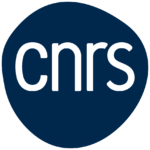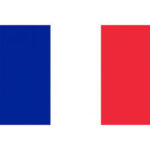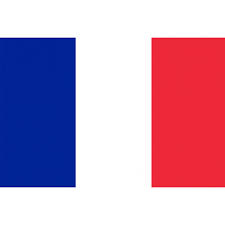
The Chair “Pays du sud” – new Global South program to promote French-African scientific collaboration on site, launched in 2024 by funding of the CNRS as part of its multi-year cooperation plan with Africa.
Find details of the CNRS Multiannual Cooperation Plan with Africa here.
Over more than 40 years, Cirm has gained international appeal, and now is the time to open up its scientific policy and hospitality to a wider audience. At Cirm, we have a constant desire for inclusivity, towards young researchers, high school students, and developing countries. France is fortunate to have an institution like Cirm, and it is our desire to promote it and open it up to as wide an audience as possible, particularly researchers from developing countries who generally have little opportunity to discover it. » Pascal Hubert, director of the International Center for Mathematical Meetings in Luminy, has decided to launch a new program—a “Southern Countries” chair—which complements the scientific offerings developed at CIRM dedicated to the African mathematical community. “We already had programs for Southern countries, notably the CIRM-AIMS residencies and collaborations with CIMPA such as the CIRM-CIMPA Fellowships and CIMPA ICTP Fellowships,” explains Pascal Hubert. Coming to CIRM is a rare opportunity for this audience, who don’t have many opportunities to travel. Demand is growing, and the feedback after their stays is particularly moving. Creating this chair therefore meant developing existing programs on a larger scale, with longer stays—two months—and bringing together an entire community around a research school and a workshop. »
A stay at Cirm, meeting its more than 5,000 international conference attendees who visit each year, is an opportunity to meet and exchange ideas with leading experts from across the spectrum of mathematics and its interactions. Its director points out that “due to its geographical location, Cirm is a natural gateway between France and Africa, with the Mediterranean as a link. Its residential, all-inclusive, and immersive nature makes it the ideal place to forge strong and lasting research collaborations between developing countries, Europe, and the rest of the world.”
The Jean-Morlet Chair experience
“We created the Jean-Morlet Chair at Cirm more than 10 years ago, and we know that it is a program that works well, attracting pairs who develop very interesting scientific projects,” adds Pascal Hubert. « Our experience, our visibility, the location, and its environment offer the ideal scientific and logistical framework for this type of program. It was therefore natural for us to respond to the call for projects for the CNRS-Joint Research Program in Africa and launch the Chair in 2024. » Thanks to 2023 funding from the CNRS, Cirm was able to launch a call for proposals after the project was approved by its Scientific Council and Board of Directors in November 2023.
A stay at Cirm, meeting its more than 5,000 international conference attendees who visit each year, is an opportunity to meet and exchange ideas with leading experts from across the spectrum of mathematics and its interactions. Its director points out that “due to its geographical location, Cirm is a natural gateway between France and Africa, with the Mediterranean as a link. Its residential, all-inclusive, and immersive nature makes it the ideal place to forge strong and lasting research collaborations between developing countries, Europe, and the rest of the world.”
This chair welcomed its first winner in 2024: Masseye Gaye (professor at Cheikh Anta Diop University in Dakar, Senegal), accompanied by Jean-François Quint (University of Montpellier). Their two-month program at CIRM, entitled “Geometry and Dynamics of Surfaces,” brought together 64 participants!
The 2026-laureate is Professor Ali Baklouti (University of Sfax, Tunisia). Winner of the Royal British Academy’s 2024 Pfizer Prize, he has played a key role in the development of mathematics in Tunisia and elsewhere. The awarding of the 2026 “Southern Countries” Chair in Mathematical Sciences to Ali Baklouti marks a recognition of Tunisia’s scientific influence and excellence in research in this field. This chair will offer new opportunities for collaboration between Tunisian mathematicians and the global scientific community, notably through the organization of meetings and thematic schools at CIRM.
With the support of:
CIRM (AMU, INSMI-CNRS, SMF)
CNRS – Multi-year cooperation plan with Africa.
AMU
CIMPA
City of Marseille
AFRImath
IMU
The scientific program
A research school (with > 60 participants attending in person):
5 days. 4 courses. CIRM promotes diversity and inclusivity: courses must be taught by both men and women. This school should be particularly geared towards young affiliated researchers from the international mathematical community (i.e., final year of master’s degree, thesis or thesis in the last 5 years): the winner should in particular encourage young people from their country to participate in the school, which will undoubtedly form the basis for future collaborations. The school will serve as preparation for the workshop that will follow. The school’s courses will be recorded, cataloged, and made available to the community via streaming and download.
A workshop will follow the school (with 20-25 participants in attendance):
5 days. Presentations in the morning, mini-projects in the afternoon. 20 presentations of 50 minutes each, over one week + informal discussions. Target audience: mathematicians from the international community, with an openness to countries in the Global South working in the same field. The most advanced participants in the school will take part in the workshop and give a presentation.`
One or two research residencies (2 to 4 participants):
Research in pairs (or groups) of 2 to 4 people working together (researchers invited by the chair holder) on a topical subject for a period of 15 days.
We believe it is important to welcome participants for two weeks rather than five days.
In order to be accessible to as many people as possible, the school and workshop may be organized in a hybrid format. The fact that the workshop follows the school will allow young people to fully integrate.
Funding:
Travel expenses (up to €1,500) and full board accommodation for the winner for a period of 1 to 2 months will be covered.
The school welcomes around 60 participants, with accommodation and meals covered for up to 40 participants. The workshop welcomes between 20 and 40 participants, with costs partially covered.
Travel expenses for certain African participants will be covered upon application, including a CV, cover letter, and two letters of recommendation.
Three participants for research in residence. Accommodation and travel expenses are covered.



